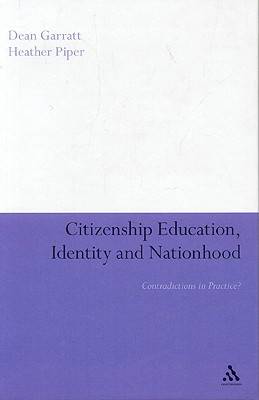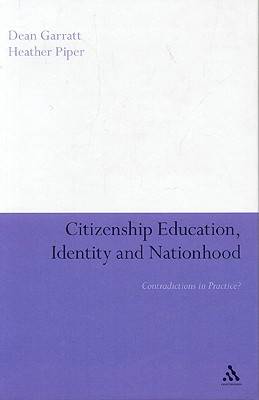
- Afhalen na 1 uur in een winkel met voorraad
- Gratis thuislevering in België vanaf € 30
- Ruim aanbod met 7 miljoen producten
- Afhalen na 1 uur in een winkel met voorraad
- Gratis thuislevering in België vanaf € 30
- Ruim aanbod met 7 miljoen producten
Citizenship Education, Identity and Nationhood
Contradictions in Practice?
Dean Garratt, Heather PiperOmschrijving
Since the beginning of the twenty-first century, citizenship education has been revived as a theoretical discourse and focus for pedagogical enquiry, with specific concern for practice in schools. These have taken particular directions where citizenship has sometimes appeared as a statutory subject and at others as a cross-curricular theme, both ways generating ideas and contestations, as well as prescriptions for classroom practitioners. Such philosophical and pedagogical momentum has occurred at a time of unprecedented global change, accompanied by an ongoing struggle to conceptualize citizenship in a manner that is inclusive and acceptable to all, and yet which is also capable of embracing a spirit of critical inquiry. This book gives a level of discourse that is central to scholars of education, including advanced undergraduate students and research specialists, whilst not precluding interest from critically inquisitive classroom practitioners. This is achieved by developing a series of entry points to themes that presently articulate with the statutory order for citizenship education: human rights, politics of identity, race, ethnicity, social justice, monarchy and subject-hood, and the challenge of global inter-dependence. The book also raises critical issues that articulate with notions of identity and self and other, and which underpin key debates of the themes for contemporary citizenship.
Specificaties
Betrokkenen
- Auteur(s):
- Uitgeverij:
Inhoud
- Aantal bladzijden:
- 200
- Taal:
- Engels
Eigenschappen
- Productcode (EAN):
- 9780826498199
- Verschijningsdatum:
- 30/07/2008
- Uitvoering:
- Hardcover
- Formaat:
- Genaaid
- Afmetingen:
- 156 mm x 234 mm
- Gewicht:
- 453 g

Alleen bij Standaard Boekhandel
Beoordelingen
We publiceren alleen reviews die voldoen aan de voorwaarden voor reviews. Bekijk onze voorwaarden voor reviews.











